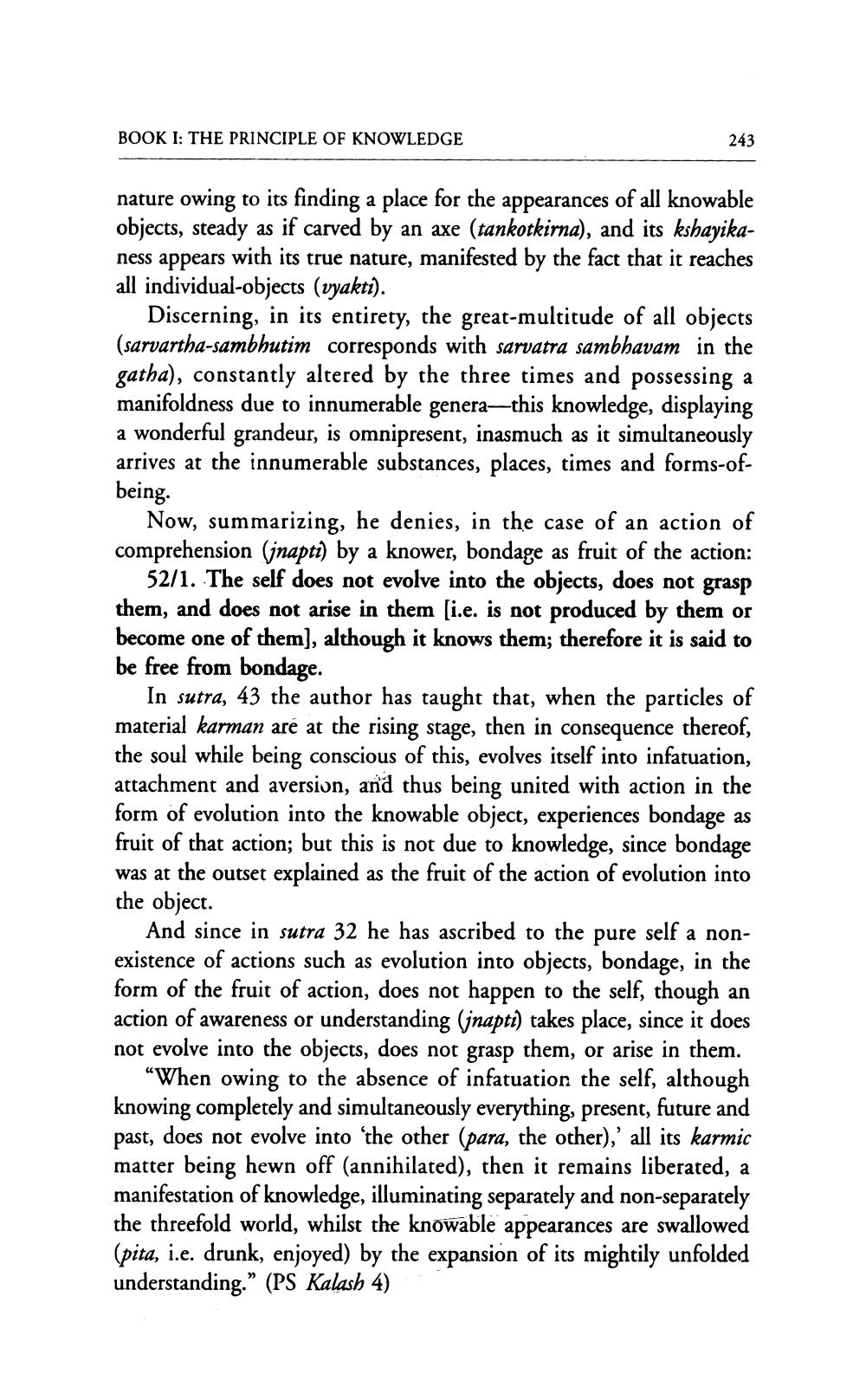________________
BOOK I: THE PRINCIPLE OF KNOWLEDGE
243
nature owing to its finding a place for the appearances of all knowable objects, steady as if carved by an axe (tankotkirna), and its kshayikaness appears with its true nature, manifested by the fact that it reaches all individual-objects (vyakti).
Discerning, in its entirety, the great-multitude of all objects (sarvartha-sambhutim corresponds with sarvatra sambhavam in the gatha), constantly altered by the three times and possessing a manifoldness due to innumerable genera-this knowledge, displaying a wonderful grandeur, is omnipresent, inasmuch as it simultaneously arrives at the innumerable substances, places, times and forms-ofbeing.
Now, summarizing, he denies, in the case of an action of comprehension (jnapti) by a knower, bondage as fruit of the action:
52/1. The self does not evolve into the objects, does not grasp them, and does not arise in them [i.e. is not produced by them or become one of them], although it knows them; therefore it is said to be free from bondage.
In sutra, 43 the author has taught that, when the particles of material karman are at the rising stage, then in consequence thereof, the soul while being conscious of this, evolves itself into infatuation, attachment and aversion, and thus being united with action in the form of evolution into the knowable object, experiences bondage as fruit of that action; but this is not due to knowledge, since bondage was at the outset explained as the fruit of the action of evolution into the object.
And since in sutra 32 he has ascribed to the pure self a nonexistence of actions such as evolution into objects, bondage, in the form of the fruit of action, does not happen to the self, though an action of awareness or understanding (jnapti) takes place, since it does not evolve into the objects, does not grasp them, or arise in them.
"When owing to the absence of infatuation the self, although knowing completely and simultaneously everything, present, future and past, does not evolve into the other (para, the other),' all its karmic matter being hewn off (annihilated), then it remains liberated, a manifestation of knowledge, illuminating separately and non-separately the threefold world, whilst the knowable appearances are swallowed (pita, i.e. drunk, enjoyed) by the expansion of its mightily unfolded understanding." (PS Kalash 4)




